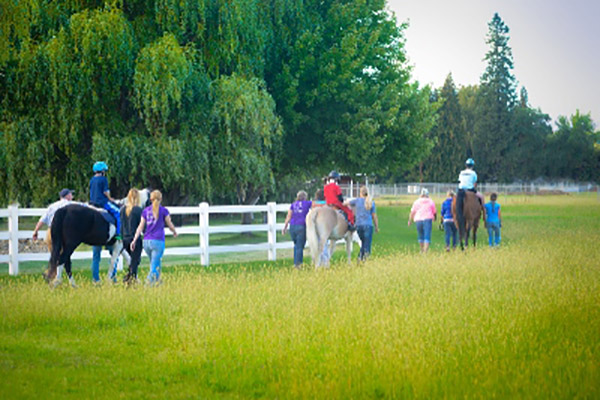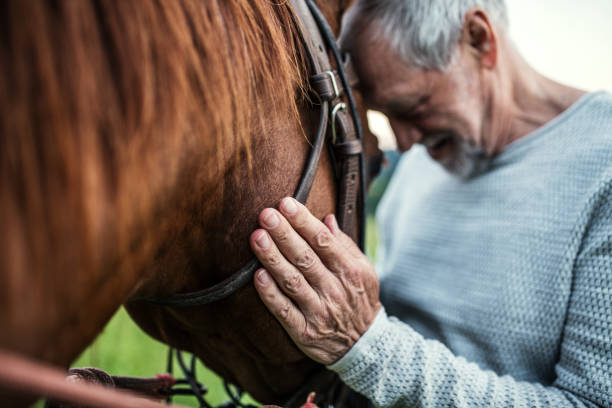Recreational Horse-Riding Programs: The foundation and trust offer a wide array of recreational horse riding programs aimed at individuals of all ages and skill levels.
These programs are designed to providea safe and enjoyable environment for individuals to engage in horseback riding as a leisure activity. Here is a closer look at their recreational offerings:
Horseback Riding Lessons: They offer riding lessons catering to beginners, intermediate riders, and advanced enthusiasts. Participants can learn proper riding techniques, horsemanship, and safety protocols.
Riding Facilities: Well-maintained riding facilities with trained horses ensure a comfortable and secure
setting for recreational riders of varying abilities.
Leisure Rides: Organized leisure rides allow participants to enjoy the beauty of the surroundings while riding horses, offering a relaxing and rejuvenating experience.
Recreational Riding Clubs: Establishing recreational riding clubs or groups encourages like-minded individuals to come together, share their passion for horse riding, and engage in group activities.
Riding Camps: Organized during school holidays or weekends, riding camps provide an immersive experience for participants to learn about horses, riding, and stable management.
Family and Community Engagement: Encouraging family and community engagement through group riding activities fosters a sense of community and strengthens family bonds through horse-related experiences.
Promotion of Riding as a Healthy Activity: Raising awareness about the physical fitness, improved balance, and stress relief benefits of horseback riding as a recreational activity.
Safety Measures: The foundation and trust prioritize safety, providing safety gear and ensuring riders are matched with horses appropriate for their skill level.
Special Events and Fun Activities: Organizing special events and fun activities, such as horse-themed games, picnics, and social gatherings, enhances the recreational experience.
Inclusivity: Striving to make recreational horse riding inclusive by welcoming participants from diverse backgrounds and abilities ensures that everyone can enjoy this activity.

